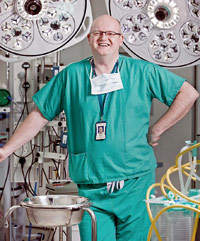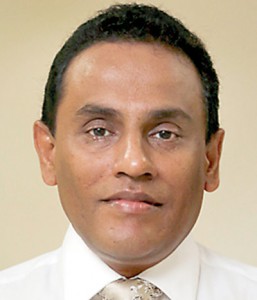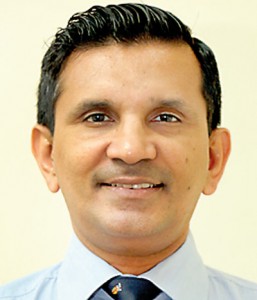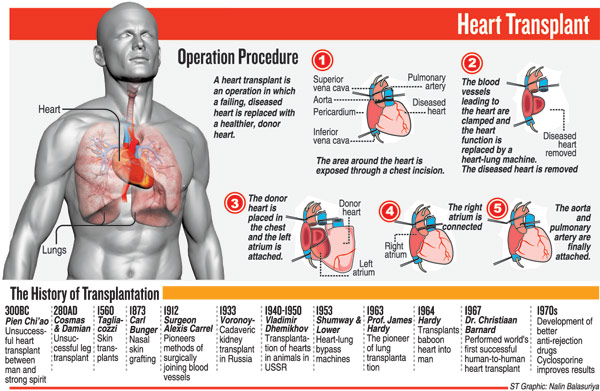News
Extension of life for those facing imminent death
With the United Kingdom (UK) having gone through the “growing pains” of heart and lung transplantations and developing a robust programme which is 35 years old, what are the lessons for Sri Lanka in its epoch-making decision to launch a similar programme?
Sri Lanka’s Heart and Lung Transplantation Programme is to be based at the Lady Ridgeway Hospital for Children, linked to other regional centres where currently cardiothoracic surgery is being performed, the Sunday Times understands, with the National Transplant Coordination Centre being at the Welisara Chest Hospital. (See box)
Urging Sri Lanka to get it right from the beginning, Prof. Stephen C. Clark, Director of Cardiopulmonary Transplantation at the Regional Cardiothoracic Centre, Newcastle-upon-Tyne Hospitals NHS Trust, is quick to point out that he is here to give a “helping hand”.
Eminently qualified he is to do so, with both hearts and lungs being his forte as a Consultant Cardiothoracic and Cardiopulmonary Transplant Surgeon.
His innovative achievements in both open-heart and minimally-invasive surgery as well as lung surgery are too numerous to mention, but the Sunday Times picked out a few from his curriculum vitae that runs into reams.
The achievements include lung transplantation from non heart beating lung donors; first surgeon to implant lungs from a donor after cardiac death in the UK; and being part of the surgical team to perform the first-ever robotically-assisted thoracic surgery in the UK, where he was the operating surgeon.
Prof. Clark was in Sri Lanka on November 25 to help set up the country’s Society for Heart and Lung Transplantation and deliver the prestigious Dr. Noel Bartholomeusz Oration at the College of Surgeons of Sri Lanka, the first non-Sri Lankan to do so.

Dr. Anil Abeywickrama
In an exclusive interview with the Sunday Times, before delving into the challenges and opportunities of heart and lung transplantation, Prof. Clark paints the grim image of those who face imminent death for lack of such a programme.
When asked who would require heart transplantation, he says that into this category would fall those with end-stage heart failure, a majority of whom would have coronary artery disease, “a particular problem in Sri Lanka” with its population facing a rising incidence of non-communicable diseases, undiagnosed congenital heart disease, ischaemic cardiomyopathy and rheumatic heart disease.
Lung transplants, meanwhile, would be necessitated due to the high incidence of asthma, obstructive airway disease and fibrotic lung disease.
“Once the initial hurdles are overcome and the heart and lung transplant programme comes into its own, the benefits to patients who are suffering from end-stage heart failure and end-stage lung failure with only days or weeks to live, are immense,” he says.
With transplantation, they get a 10-20 year fresh lease of life, the Sunday Times learns, with 80% able to lead a completely normal life.
“They can walk in the park, get married, get divorced, play with their kids and do anything they want,” says Prof. Clark.
Combined heart and lung transplants can be done but are “very rare”, according to him. They are unusual and in a minority.
Usually, in lung transplantation it is better to transplant both lungs rather than one, “but one is better than none”.

Dr. Kanchana Singappuli. Pix by M.A. Psuhpa Kumara
The challenges in Asia for heart and lung transplantation include too few transplantation centres although the technology is available, costs being prohibitive with basic healthcare being a priority in the region and lack of health infrastructure to develop thoracic transplantation, shortage of cadaver donor organs in addition to multi-cultural and religious beliefs.
“However, in Buddhism donations are seen as an act of charity with positive ramifications,” he says, citing pace-setter large-scale corneal transplantations initiated after the Sri Lanka Eye Donation Society was founded in 1961.
Getting down to the precision with which the heart and lung transplantation programme works in the UK, Prof. Clark says there are five National Transplant Centres under a geographic zonal system.
When a patient is declared brain-dead and there is no chance of recovery, then and only then will the organ be offered to the relevant Transplant Centre, with the recipient having been picked electronically from a “blind” priority list based on “a good fit” of the organ size and blood group.
How a person is declared brain-dead and suitable for organ-harvesting also follows a strict procedure, he says categorically. Two senior doctors will separately carry out “independent” examinations of the potential brain-dead person against “set criteria” for brain death.
These two doctors are in “no way” involved with the transplantation team or the transplantation unit. If there is any doubt whether the potential brain-dead person is brain-dead or not, the patient will be re-tested awhile later. The doctors will err on the side of the patient, giving every opportunity for the patient to recover.
Not only hearts and lungs but also other organs are harvested from young patients who are brain dead due to head trauma mainly due to accidents or those who have suffered a stroke with a bleed into the brain, the Sunday Times understands.
Such patients need to be pronounced brain dead “with absolutely no chance of recovery”. Even though they are brain dead, their hearts beat and their lungs work.
Referring to the procedure through which hearts and lungs may be donated, Prof. Clark explains that there is a National Health Service Organ Donor Register and the public can indicate their willingness to donate online or when registering for a driving licence or a European Health Insurance Card and at a General Practitioner’s surgery.
“It can either be a yes or no,” he stresses, adding that this may not bring in a good return. Now Wales (part of the United Kingdom with the other states being England, Scotland and Northern Ireland) has tried a different tack, with everyone being deemed a donor unless there is a specific ‘No’ to organ donation.
This has brought in more donations. If the wishes of the donor are not known then the Human Tissue Act of 2004 comes into play.
When a person is on the Donor Organ Register, in law this decision cannot be overridden by family and if a person is hit by a bus and is declared brain-dead, the heart and lungs can be harvested.
However, Prof. Clark underscores the fact that in practice the family’s considerations are taken into account. “If the family recoils in horror at the thought of organ donation, specialist nurses embedded in the Intensive Care Units (ICUs) to facilitate organ donation mediate and liaise with the family to attempt to persuade the relatives that the brain-dead person’s wishes need to take effect.
If there is an impasse, the decision will be on a strict individual-to-individual basis,” he says.
The challenges of heart and lung transplantation, meanwhile, do not come at the time of surgery, according to Prof. Clark who has done one particular operation “in one sitting” lasting 23 hours, although rare.
The golden window for heart transplantation is four hours and for lung transplantation six hours.
Post-transplant care is what is crucial, he says, adding that the main complications arise from the recipient’s immune system rejecting the donated organs for which life-long immuno-suppressants have to be taken. But this in turn makes the recipient vulnerable to infections.
(Pls see profile of Prof. Stephen C. Clark on P3 of the PLUS)
| How the programme will function All Consultant Cardiothoracic Surgeons and Thoracic Surgeons in Sri Lanka are fully supportive of a Heart and Lung Transplantation Programme, said Cardiothoracic Surgeon Dr. Anil Abeywickrama. The Sri Lanka Society for Heart and Lung Transplantation (SLSHLT) which was formed on November 25 has Prof. Stephen Clark as its Chairperson. As such, it would be imperative that the SLSHLT follow the guidelines and protocols of this world-renowned expert in heart and lung transplants performed here while also keeping to the standards of the International Society for Heart and Lung Transplantation from which it will shortly gain affiliation. The transplantation programme will be spearheaded by the Association of Cardiothoracic and Thoracic Surgeons of Sri Lanka (ACTSSL) in collaboration with the College of Surgeons of Sri Lanka, said Dr. Abeywickrama. The transplantations would be performed, once systems are in place and training carried out, not only at the Lady Ridgeway Hospital (LRH) for Children, the National Hospital of Sri Lanka and the Sri Jayewardenepura Hospital in Colombo but also at the Kandy and Karapitiya Teaching Hospitals. “The catchment area will be wide,” said Dr. Abeywickrama, adding that there is hope that the Jaffna Teaching Hospital would also be able to begin heart surgery soon to widen the area further. The National Transplant Coordination Centre should be linked to the Intensive Care Units (ICUs) of the State hospitals spread across the country while the organ recipient list needs to be prioritised every week. When an organ is available there would be a scoring system which would indicate to whom it should go to. There are no names of those needing organs only numbers according to this scoring system. “No one would know who is at the top of the recipient list,” he says. Stressing that “transparency” and a “blind” system are of vital importance, Dr. Abeywickrama who has been part of the UK Freeman Hospital’s programme as a Transplant Surgeon details what needs to be in place in Sri Lanka: - A vibrant Donor Programme “Easiest are retrieval and implantation, easier than closing a hole in the heart,” he smiles, adding that the hurdles arise when promoting donations and in caring for the recipient after the transplantation. After the transplant, the full team has to meet without fail each day in the morning and evening to discuss the care-plan for the next 12 hours. This is the dedication and commitment required of a transplantation team. Underlining the importance of training, he says that a team of medical professionals will participate in an intensive programme at the Freeman Hospital next March. Meanwhile, people at the grassroots need to be made aware through places of worship, village organisations etc., about organ donation and its importance. The others who have put their shoulder to the wheel to get this transplantation programme off the ground are ACTSSL Secretary and Thoracic Surgeon Dr. Waruna Karunaratne, Cardiothoracic Surgeon Dr. Kanchana Singappuli, Respiratory Physician Dr. Amitha Fernando and Thoracic Surgeon Dr. Dhammika Rasnayake. |

